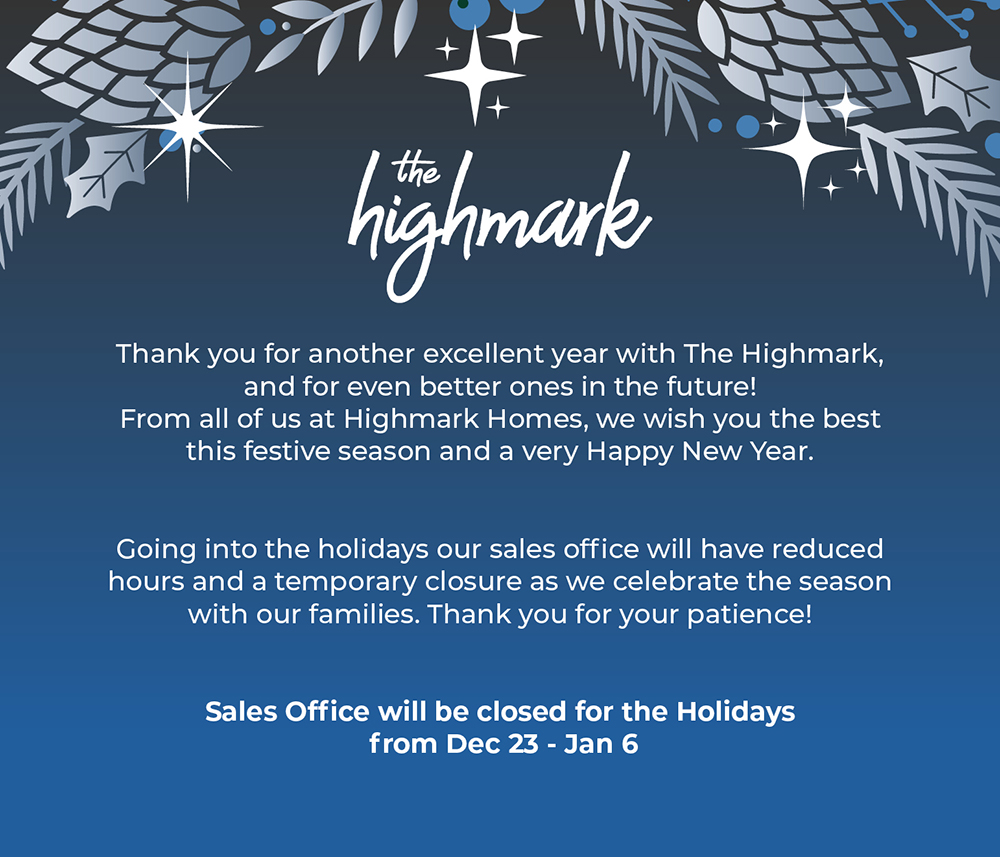As part of our Family First Customer Care program, we’ll
be there when you need us. If you have questions about
anything, give us a call, we’ll be happy to help.
In the meantime, we’ll send you regular updates on the construction progress of your new home and when it’s ready, we’ll take you on a Frame Walk.
Frame Walk. Highmark offers its homebuyers’ an opportunity to do a frame walk through once the framing, electrical and plumbing has been completed. This is to ensure all your requested structural changes have been implemented. We’ll also show you how your roof system works before it gets covered by insulation and drywall. This frame walk helps ensure your PDI goes smoothly and fewer deficiencies need to be noted.
Pre-delivery inspection (PDI). This is one of your first opportunities to view your completed home. Your builder will guide you through an inspection and demonstrate how to operate home systems such as plumbing and heating. Any items that contain deficiencies will be noted on the builders PDI form to verify that these items will be taken care of before move in or shortly thereafter. You will be asked to sign this form once the inspection is complete.
What does my Tarion warranty look like? The primary purpose of your Tarion warranty is to protect you by ensuring builders abide by the provincial building legislation. Tarion warranty remains with the property so if you sell your home, the new owner is still covered.
One-Year Warranty. For a one-year period, beginning on the date of possession, your new home is to be free from defects in material and fit for habitation. At this stage, Tarion also protects you from unauthorized substitutions and against Ontario Building Code violations.
Two-Year Warranty. For a two-year period, beginning on the date of possession, Tarion warranty protects you from the following:
- Water penetration through building envelope, the basement or foundation walls.
- Defects in materials and workmanship that affect windows, doors, and caulking.
- Defects in work or materials in the electrical, plumbing and heating delivery and distribution systems.
- Defects in work or materials that result in the detachment, displacement or deterioration of exterior cladding.
- Against violations of the Ontario building code that affect health and safety.
Seven Year Warranty. For a seven-year period, beginning on the date of possession, Tarion warranty protects you from major structural defects such as failure of a structural load bearing element of the building, home is not habitable.
Emergency Situations. Certain severe conditions constitute an emergency situation including total loss of heat, electricity, water supply, major plumbing leak, major water penetration or collapse of interior wall. In these situations, call the emergency contact number provided by your builder. If the issue is not corrected in 24 hours, you should contact Tarion for further assistance.
You can visit tarion.com to learn more about what’s included as defined in the Ontario New Home Warranties Plan Act.
I’ve got an emergency.
Click Here for a list of Highmark’s Emergency Contacts
- On-site service
- Deficiency reporting procedure
- Emergency support
Closing day. Closing day is the day you finally take legal possession of your home. There are many things to prepare for on your closing day. Here are some things to remember:
Hire a mover. About one month prior to closing, schedule a mover for the day your home closes. Your lawyer must pay the vendor (builder) and register your home in your name. This typically takes some time so you may not get your keys from the site super until mid afternoon so be prepared with snacks and drinks for a long, but exciting day.
Utilities. About 4 weeks prior to closing, you should have organized and set up your utilities (Internet, cable, etc.). If you try to do this after you’ve moved in, you will likely have to wait several days before a technician is available and before everything is installed.
Lawyer. About 2-5 days prior to closing, your lender (financial institution) should be providing your mortgage money to your lawyer/notary. You are responsible for giving your lawyer the down payment (minus the deposit), as well as all the related closing costs that are outlined in your APS. On closing day, your lawyer can then:
- Pay the vendor
- Register the home in your name
- Give you the deed and keys to your new home


